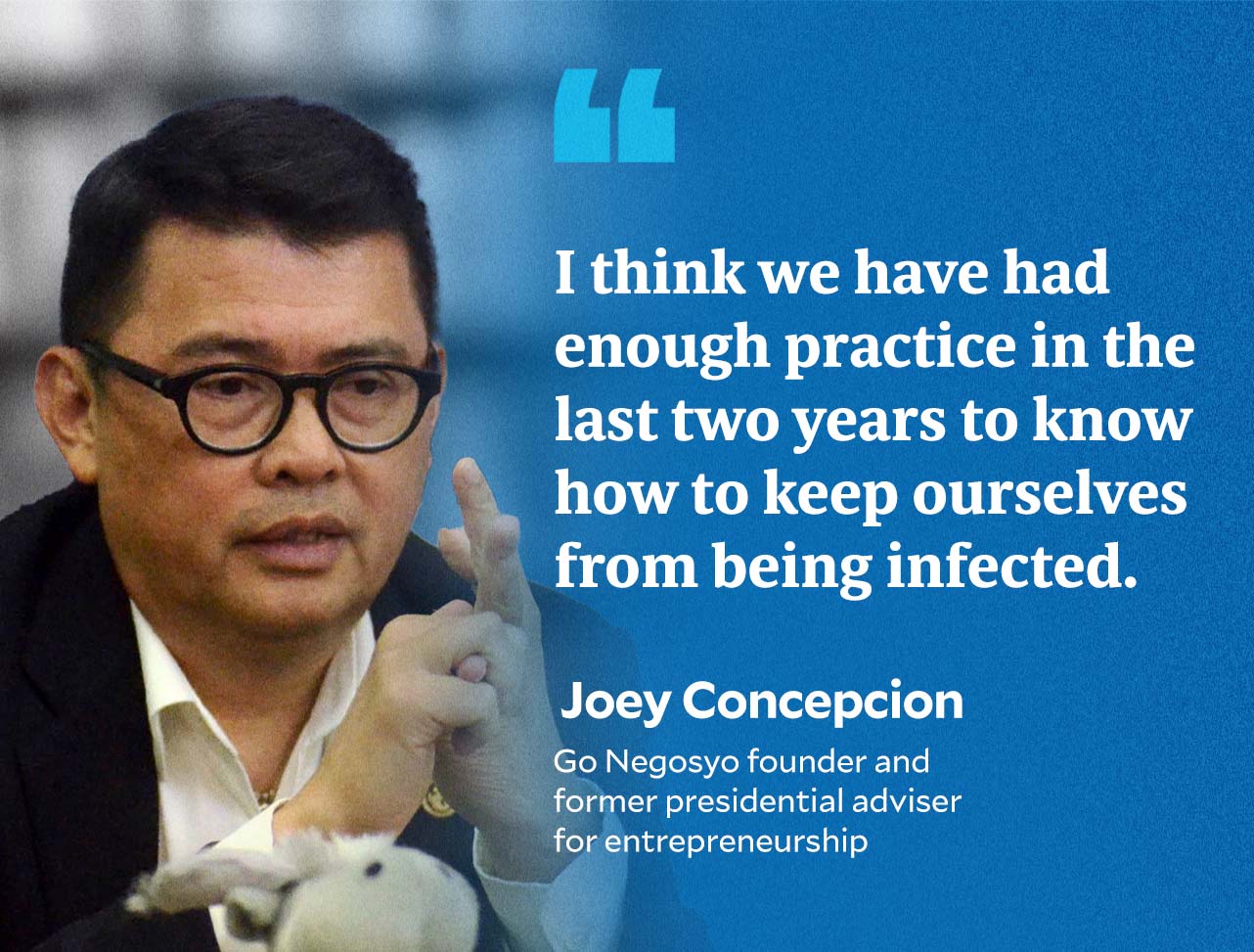Mask outdoors now optional: Taking risks vs COVID
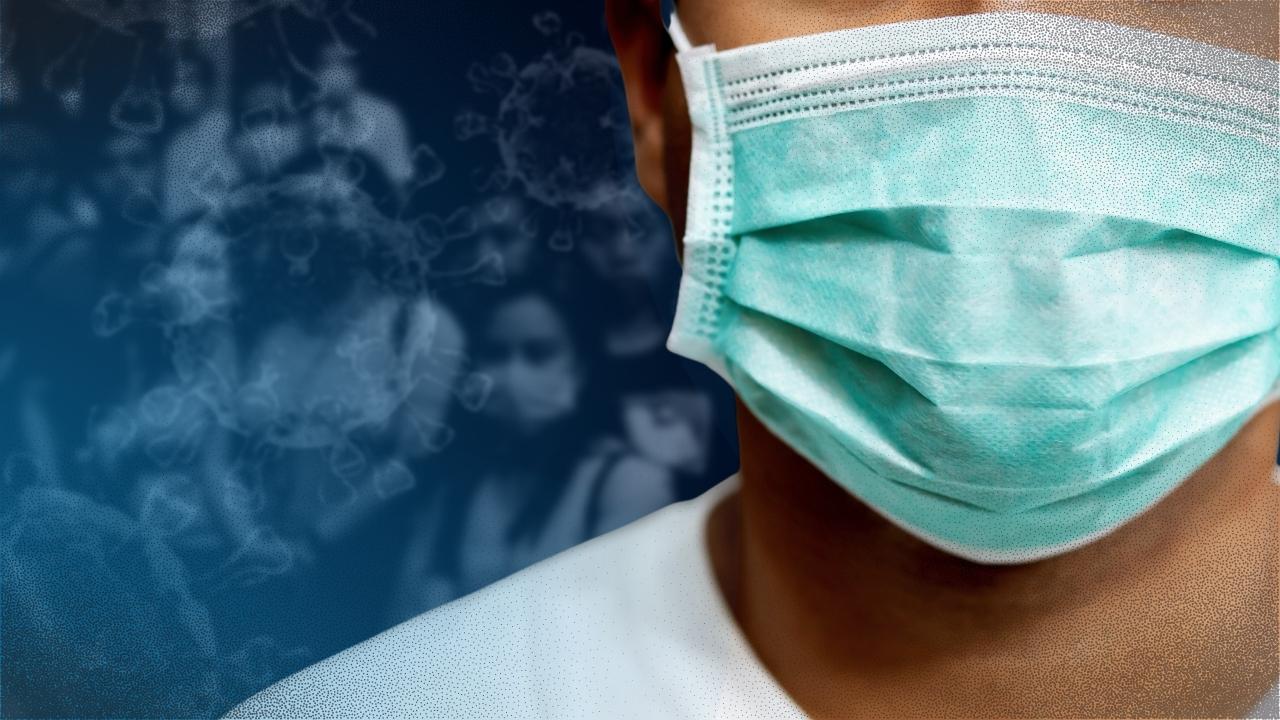
INQUIRER FILE PHOTO
MANILA, Philippines—In the war on COVID-19, face masks were among the people’s first line of defense against the virus. As the Philippine president signed the order allowing the optional use of masks outdoors, Filipinos are left to “manage their own risks.”
On September 12, Malacañang announced that President Ferdinand “Bongbong” Marcos Jr. has signed Executive Order No. 3, approving an earlier recommendation by the government’s pandemic task force to lift the mandatory wearing of face masks in outdoor areas.
READ: PH relaxes protocol after IATF recommended optional face mask use outdoors
The newly-signed EO No. 3 allows the “voluntary wearing of face masks in open spaces and non-crowded areas.”
However, it emphasized that immunocompromised individuals, senior citizens, and those who are not fully vaccinated against COVID are still “strongly encouraged” to continue wearing face masks even outdoors.
“Face masks shall continue to be worn in indoor private or public establishments, including public transportation by land, air, or sea, and in outdoor settings where physical distancing cannot be maintained,” the order stated.
Article continues after this advertisementAccording to Press Secretary Trixie Cruz-Angeles, the order will take effect immediately.
Article continues after this advertisementREAD: Face mask use now voluntary outdoors but…
Prior to the signing and issuance of the order, health experts have already expressed concerns about the Inter-Agency Task Force for the Management of Emerging Infectious Diseases’ (IATF) recommendation to ease the country’s face mask policy.
Some cited the country’s positivity rate which has yet to slide down, as well as the unattained booster target, saying that it is “not yet time” or “too early” to lift the face mask rule.
READ: To wear, or not wear, face masks vs COVID: The zigzag road PH is taking
Open to self-interpretation
Although the order detailed where people can opt to remove their masks (open spaces, non-crowded outdoor areas with good ventilation) and who are still required to keep their masks on at all times, some worry that the new mandate might be open to self-interpretation.
“EO No. 3 makes mask wearing voluntary in ‘open spaces and non-crowded areas with good ventilation’,” lawyer Theodore Te said in a tweet.
“Unfortunately ‘open,’ ‘non-crowded’ and ‘good ventilation’ are all open to personal interpretation and opinion, which doesn’t solve, but rather creates more, problems,” Te added.
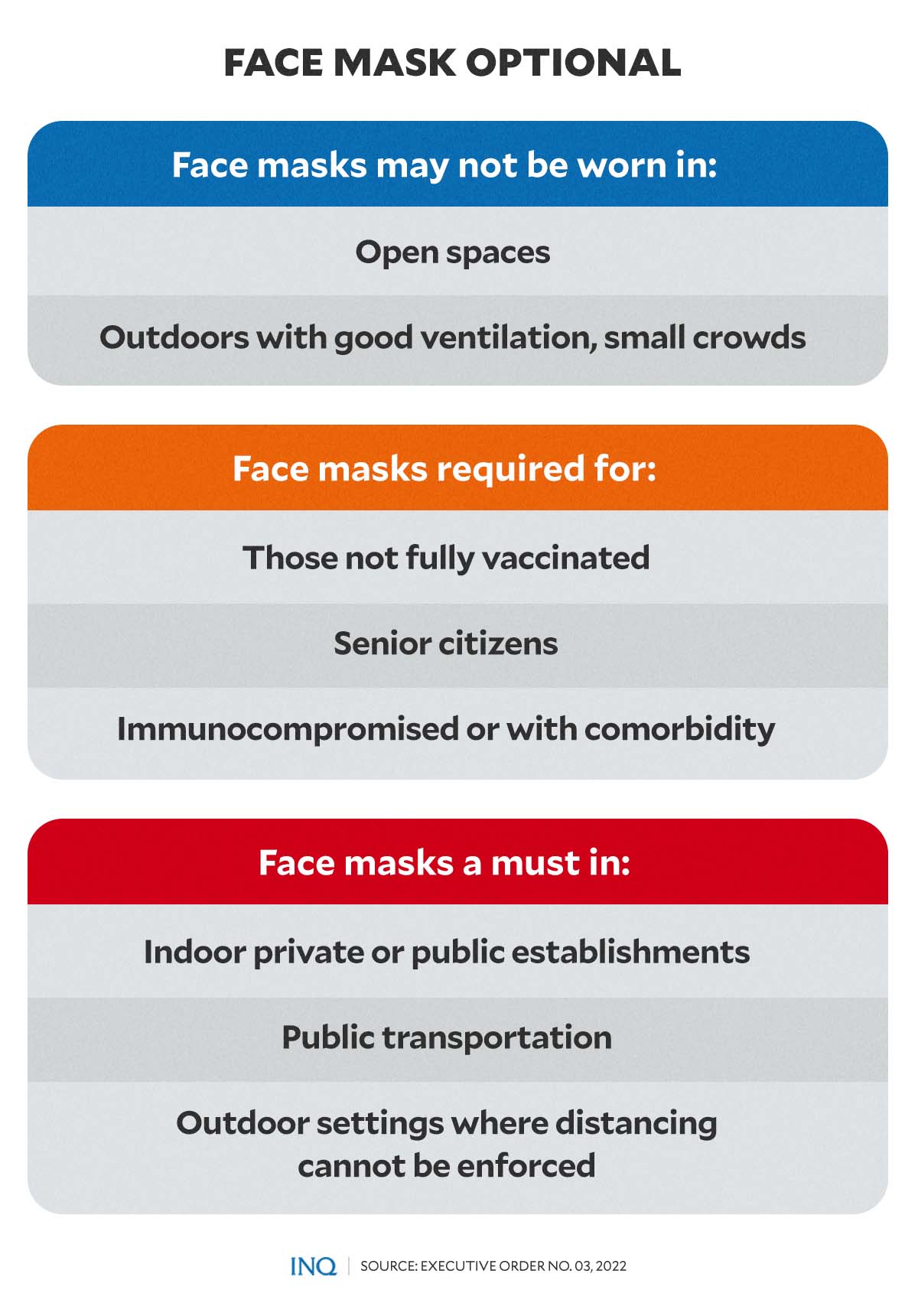
GRAPHIC Ed Lustan
Asked whether the public will follow the conditions under EO No. 3—the whos and wheres of the voluntary face mask use, health advocate and former National Task Force for COVID-19 special adviser Dr. Tony Leachon said he believes the public might not consider the conditions and simply follow the “optional face mask” rule.
“With the mixed and confusing messages, I think people will just follow optional face mask in outdoors and open spaces and the IATF guidelines,” Leachon told INQUIRER.net
“The government has given some people the choice to justify their non-compliance,” he added.
Last week, Leachon called out the Department of Health’s (DOH) recent graphics or visual aids reminding the public of the need for protection against COVID by wearing masks outdoors—which he said could spark confusion among the public.
In an interview last September 8, Health Undersecretary Maria Rosario Vergeire, Department of Health (DOH) officer-in-charge, said the health department wanted to retain the mandatory wearing of face masks.
“The position of the DOH is for us to continue on masking, but there were several data that were presented also that led to this decision (lifting the mandatory mask use outdoors),” she said.
READ: DOH for retention of mandatory face mask policy, compromise reached — Vergeire
In a tweet last September 12, Leachon urged the public to “wear face masks and boost up” as the country waits for the implementation of EO No. 3.
“We should encourage face masks outdoors and indoors. The virus is still out there. We have a very low booster rate at 23% compounded by 20 M expired vaccines and extension of the state of calamity,” he said.
“Face masks are our protective gear to live with the virus. It’s the last one to go,” he added.
READ: Palace: State of calamity due to COVID continued for ‘possibly 3 months’
Unmask at your own risk
In a statement, former presidential adviser for entrepreneurship and Go Negosyo founder Joey Concepcion said once implemented, the voluntary use of masks outdoors will allow Filipinos “to manage their own risks.”
“If voluntary outdoor masking becomes policy, it will allow Filipinos to manage their own risks,” Concepcion said in a statement, adding that Filipinos must be diligent in practicing health protocols like having good ventilation, physical distancing, and frequent hand washing.
“I think we have had enough practice in the last two years to know how to keep ourselves from being infected,” he noted.
READ: Filipinos to ‘manage own risks’ with optional mask rule, says Concepcion
In a separate statement, Concepcion also said that Filipinos will know how to reduce the risk of catching COVID-19, especially considering that a survey early this year showed that people will continue to wear face masks to protect themselves and their families even when they are not required to do so.
He was referring to a survey conducted by the OCTA Research last March 5 to 10, which found that around 67 percent of Filipino respondents plan to continue wearing face masks even after COVID-19 is already controlled.
Around 29 percent said they would no longer wear face masks given a similar scenario, while four percent said they do not know yet.
In the same survey, OCTA Research also noted that those who said they will keep their masks on, despite the controlled COVID situation, would do so in the next 6 months (38 percent), one year (37 percent), two years (10 percent), and five years (9 percent).
There are a total of 3,908,295 cases of COVID-19 nationwide as of September 12.
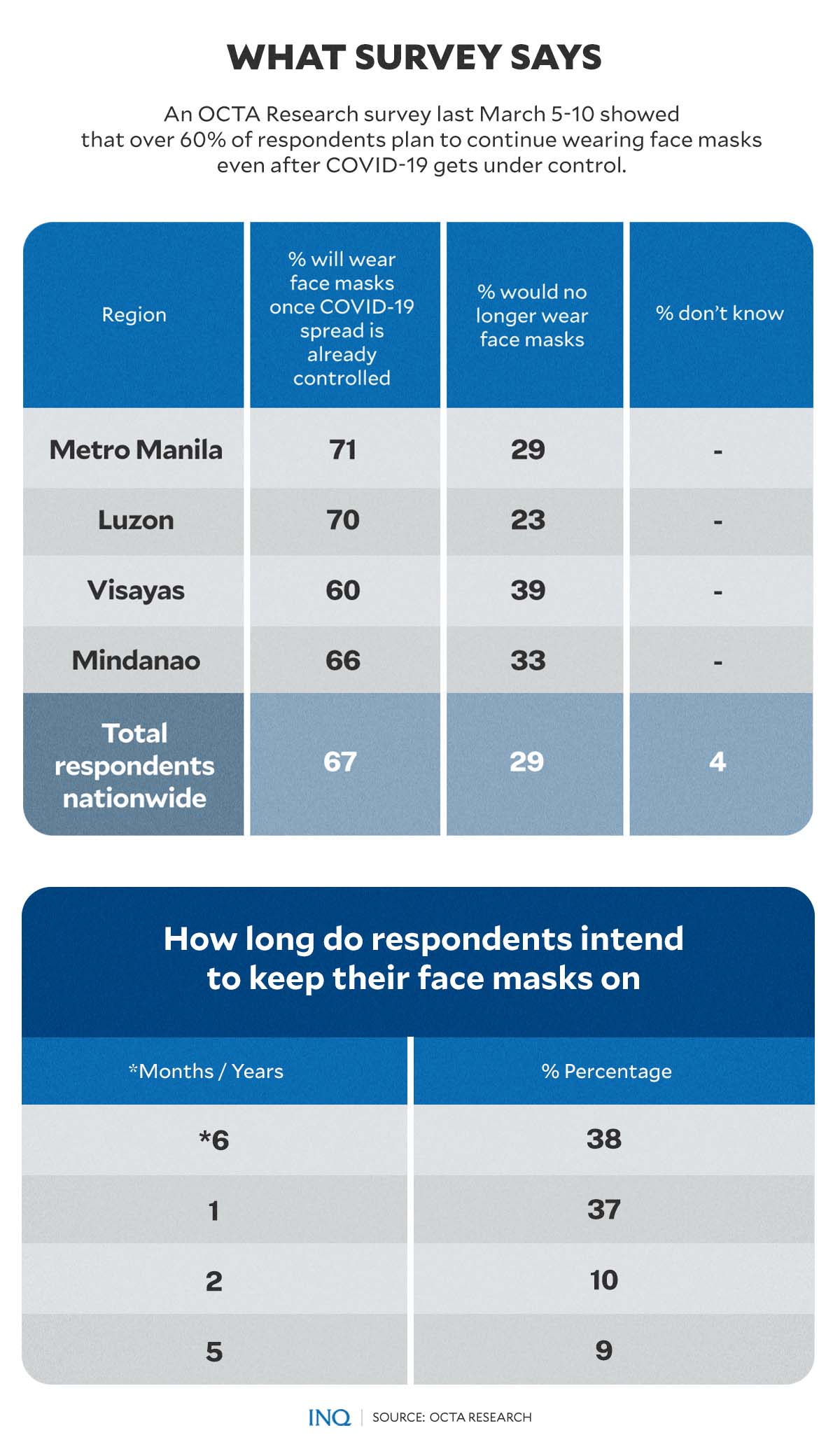
GRAPHIC Ed Lustan
Around 25,262 of those were tagged as active cases while 3,820,691 already recovered and 62,342 were deaths.
OCTA Research last September 11 noted a slight increase in COVID-19 cases in Metro Manila—which was attributed to increased mobility. The region’s positivity rate also increased to 13.3 percent on September 9 from the previous week’s 12.1 percent.
READ: Slight increase in Metro Manila COVID-19 cases recorded — OCTA
According to data from DOH, the country’s positivity rate from September 4 to 7 is 11.9 percent, far exceeding the World Health Organization’s (WHO) moderate (5 percent or below positivity rate) and low (2 percent or below positivity rate) classifications.
‘Mask-free’ countries keep masks on
Last week, Tourism Secretary Christina Frasco lauded the recommendation to liberalize the use of face masks outdoors, as it could be a strategy to speed up the tourism industry’s recovery.
Frasco cited increasing tourist arrivals in the Philippines’ neighboring Asean countries such as Singapore, Thailand, Malaysia, Vietnam, and Indonesia after mask mandates were liberalized.
The tourism secretary added that aside from Asean countries, key tourism markets such as Japan, South Korea, Hong Kong, the United Kingdom (UK), the rest of the European Union (EU) and the United States (US) have also begun lifting mask mandates.
READ: DOT: Easing mask mandate will ignite PH tourism recovery
However, a report published by the Washington Post in April this year bared that despite lifting the outdoor mask mandate in Singapore, many still opted to wear face masks when going out.
“Tokyo-ites” and other residents of Japan also do the same. Separate reports published by The Asahi Shimbun last May and The Japan Times last June showed that many Japanese still continue to wear face masks even after the government’s eased policy on outdoor face mask use.
Some interviewed by The Asahi Shimbun cited peer pressure as a reason they decided to keep wearing face masks outside.
Last May, The Guardian reported almost the same thing, except it was happening in South Korea.
The Philippines’ health department recently said one of the reasons to continue wearing face masks despite new rules was that “It has already been a habit or choice of some people to keep wearing masks.’
Protect yourself, family, community
The Johns Hopkins Bloomberg School of Public Health recommended the following precautions as an added protection against SARS-CoV-2—the virus that causes COVID-19—and various COVID variants.
- Mask up in public transportation, hospitals, long-term care facilities, and other select public spaces.
- Immunocompromised individuals should wear masks, proceed with caution.
- If exposed to COVID-19, or if within the first 5 days of coming out from isolation for COVID infection, wear a mask indoors.
- Get all eligible family members up-to-date on COVID vaccines.
- Take precautions.
“Once again, we are entering a new phase of “reopening”—and, this time, unmasking is at the heart of the changes,” said Johns Hopkins Bloomberg School of Public Health.
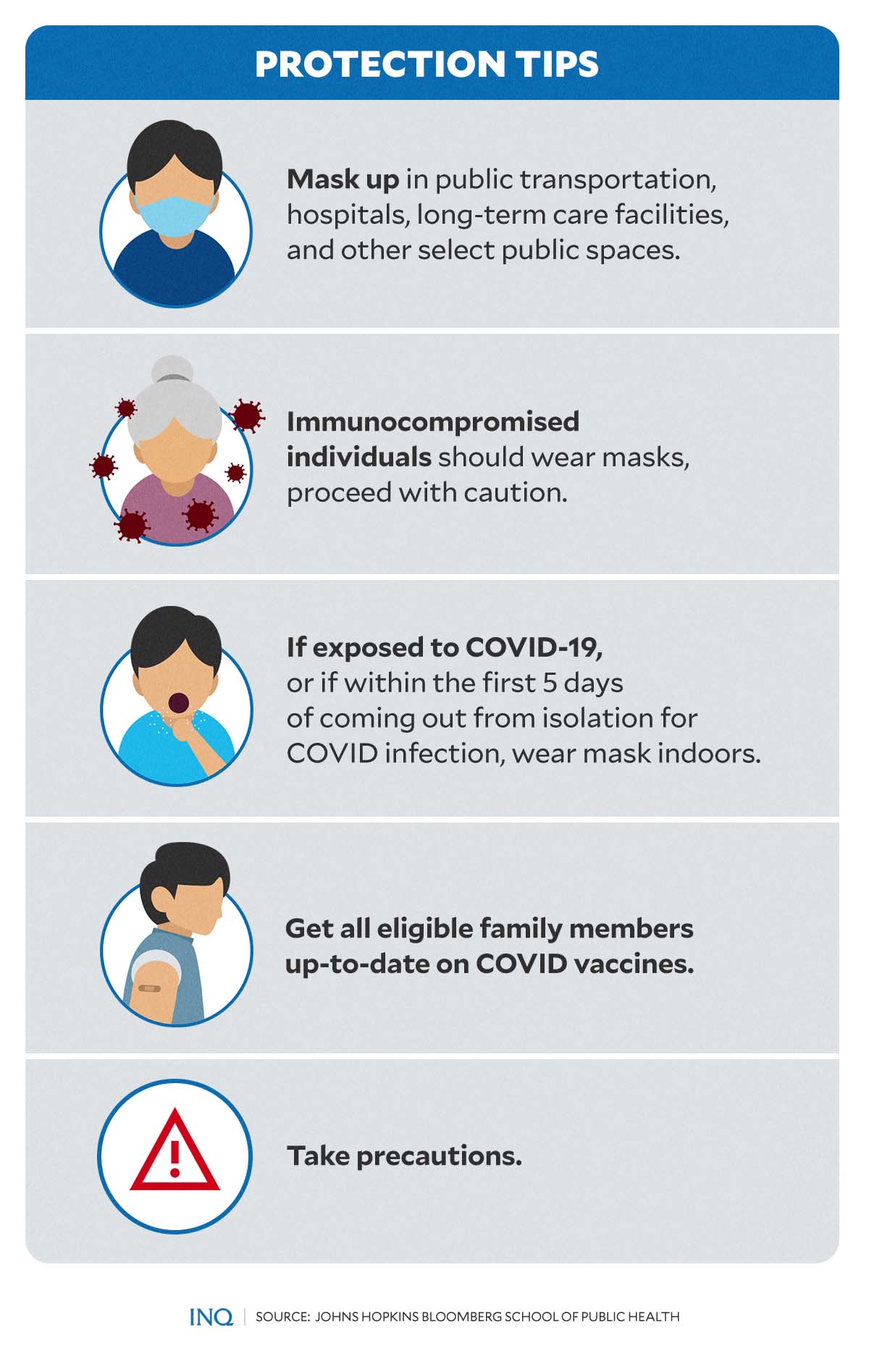
GRAPHIC Ed Lustan
“We are at a very different place than we were a year ago with vaccines, tests, and treatments more available, and with more knowledge about how to keep ourselves and our communities safe,” it said.
“Even if the transmission is low, if you are unvaccinated or not fully vaccinated, you still need to take precautions to avoid spreading COVID-19 to others both in your home and your community,” it added.
TSB
For more news about the novel coronavirus click here.
What you need to know about Coronavirus.
For more information on COVID-19, call the DOH Hotline: (02) 86517800 local 1149/1150.
The Inquirer Foundation supports our healthcare frontliners and is still accepting cash donations to be deposited at Banco de Oro (BDO) current account #007960018860 or donate through PayMaya using this link.
